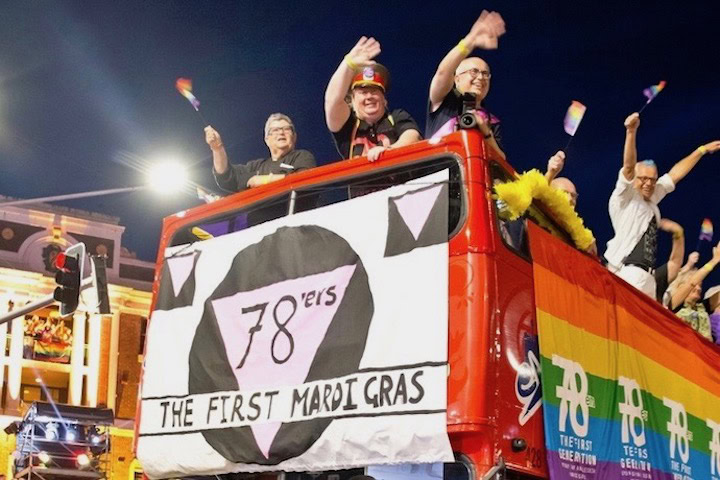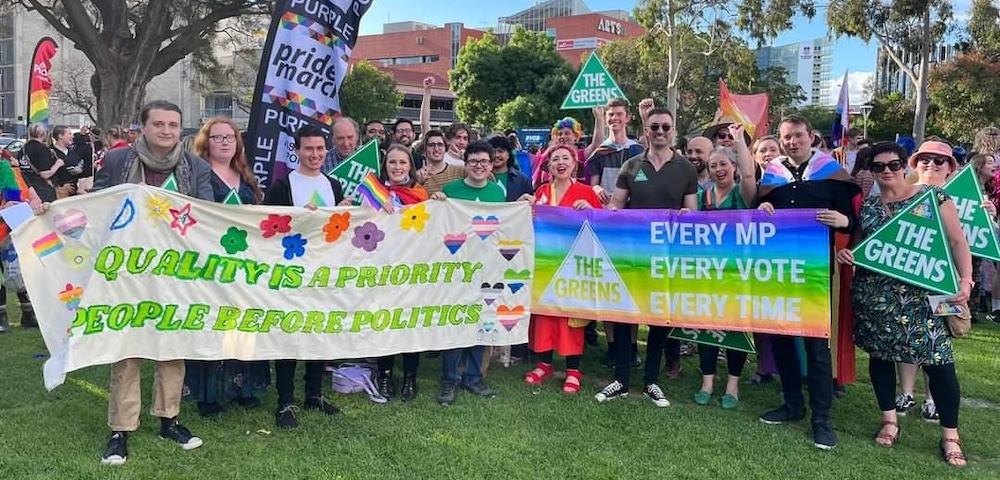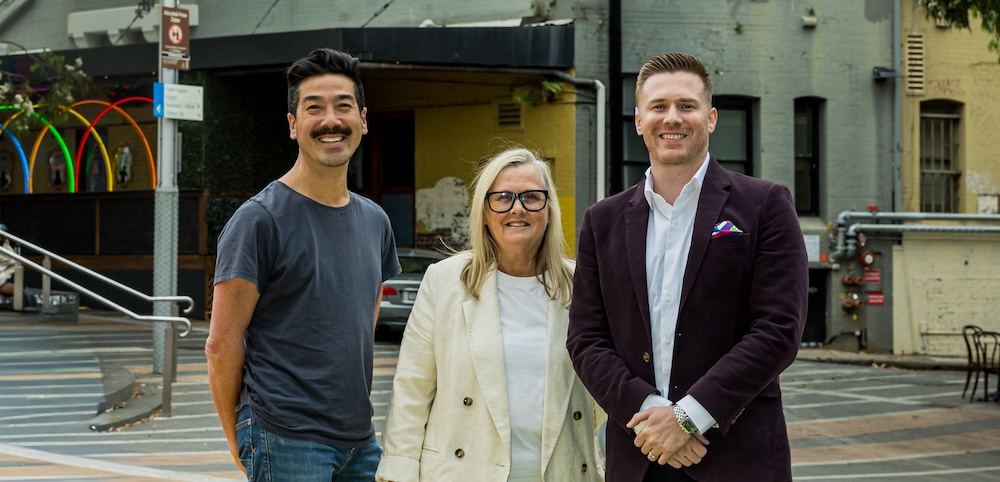
Mardi Gras 78ers at each other’s throats over name ownership

A legal battle has split the original 1978 Mardi Gras protestors, with two rival groups—the First Mardi Gras committee and the 78ers Collective—battling it out over ownership of the ’78ers’ name.
The 78ers C0llective has trademarked the term ’78ers’, preventing the Sydney Gay and Lesbian Mardi Gras (SGLMG) and their official partner, the First Mardi Gras committee, from using it.
Speaking to the Star Observer, a Mardi Gras 78er who wished to remain anonymous—and who has departed from both the First Mardi Gras and 78ers Collective groups—said tensions had risen as various “personalities” had become involved.
“Over the years, these two groups have gradually grown apart. They’ve all had their vague conflicts, but they can normally put their differences aside for certain events.
“A couple of years ago, the 78ers Collective leader … registered a copyright for the 78ers, which means that now no one [else] can use that title. I mean, hello? What did all of those 78ers have in common?
“First Mardi Gras tried to register ’78ers’ themselves, but the Collective had already registered it … the Collective contacted a lawyer at Dowson Turco and said that they were going to sue the First Mardi Gras if they don’t give up using it.
The source claimed: “The First Mardi Gras work with Sydney Gay and Lesbian Mardi Gras while the 78ers Collective—they just come out of the woodwork to complain.
“There’s this mad fight going on now about who can use what title. It’s absolute madness. Both think that the other mob ought to give up. It’s idiocy, it’s acrimony, and now, they’ve got personalities involved.”
Emails obtained by the Star Observer show communications between First Mardi Gras committee members and Dowson Turco Lawyers, who are representing the 78ers Collective, which call for the SGLMG to remove all references to the ’78ers’ term.
“I refer to our meeting earlier this year and am instructed to request Sydney Gay and Lesbian Mardi Gras’ (including its subsidiaries and related entities) removal of all references to the term “78ers” from its website assets, social media assets and printed and digital publications,” Nicholas Stewart, a partner at Dowson Turco Lawyers, wrote to the SGLMG committee.
“This is consistent with the ’78ers Association’s ownership of the trademark 78ers / SEVENTYEIGHTERS as registered under Trade Mark Number 1896021 registered 20 December 2017.
“Our client would be happy to meet with you to further discuss this matter but it is important that the above actions are taken to give our client faith in respect of compliance with its legal entitlements.”
The Star Observer understands the SGLMG was in the process of taking votes for their ‘Mardi Gras 78er committee’ when they received the legal letter. The 78ers Collective, who have a tense history with the SGLMG board, then responded with the trademark notice.
Emails from 78ers Collective indicate that Collective members were not made aware that SGLMG was conducting elections for their ‘Mardi Gras 78er committee’.
“SGLMG is conducting elections for their ’78er Committee’ now. We have NEVER agreed to this committee!” stated an email from the Collective seen by the Star Observer. “We do NOT give licence to 78ers name on this committee or its aims!”










Only those who actually participated should have a say. Gay and Lesbian Mardi Gras has strong brand and historical linkage so should stay as the title. People shouldn’t be trying to rewrite history.
Yes there are legitimate 78ers in both these groups and each has had political differences for many years.. The real problem is Mardi Gras needs to have its own process to identify who those original activists were and are without favouring one group or the other. The problem is not about the nomenclature of the group per se its about the recognition and favour given at board level to one group over the other instead of accurately identifying and functionally working with the survivors on an apolitical level.